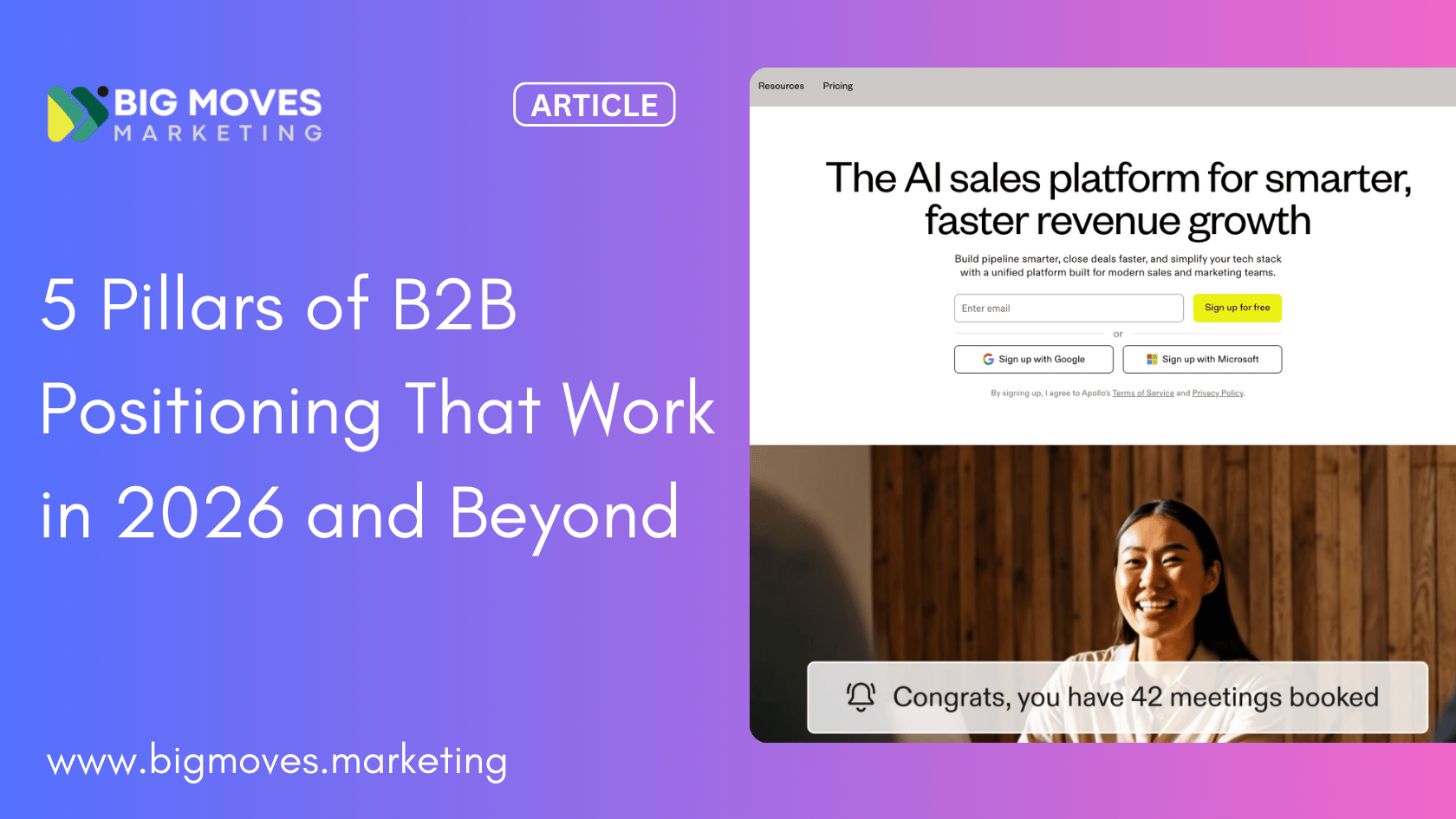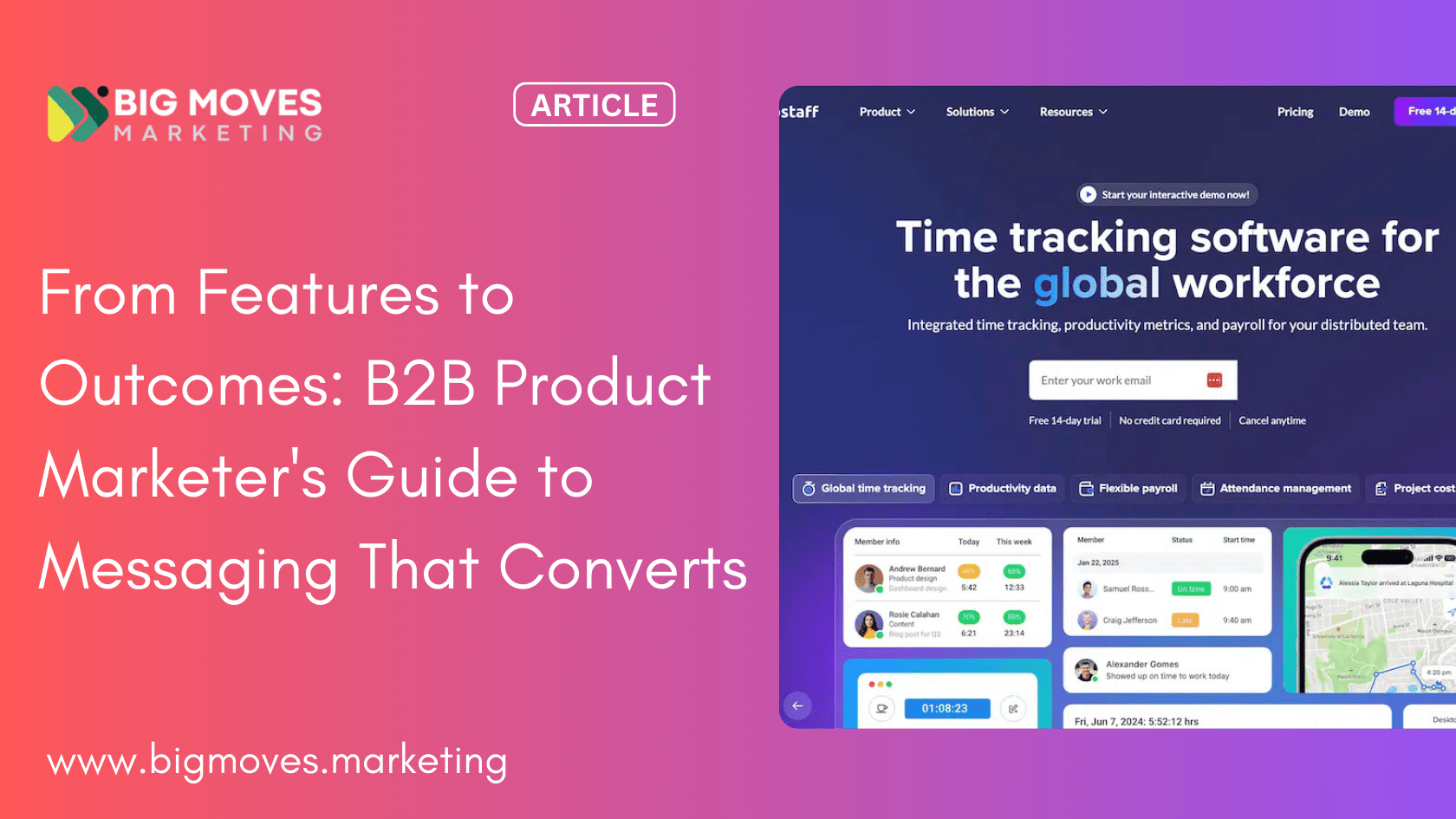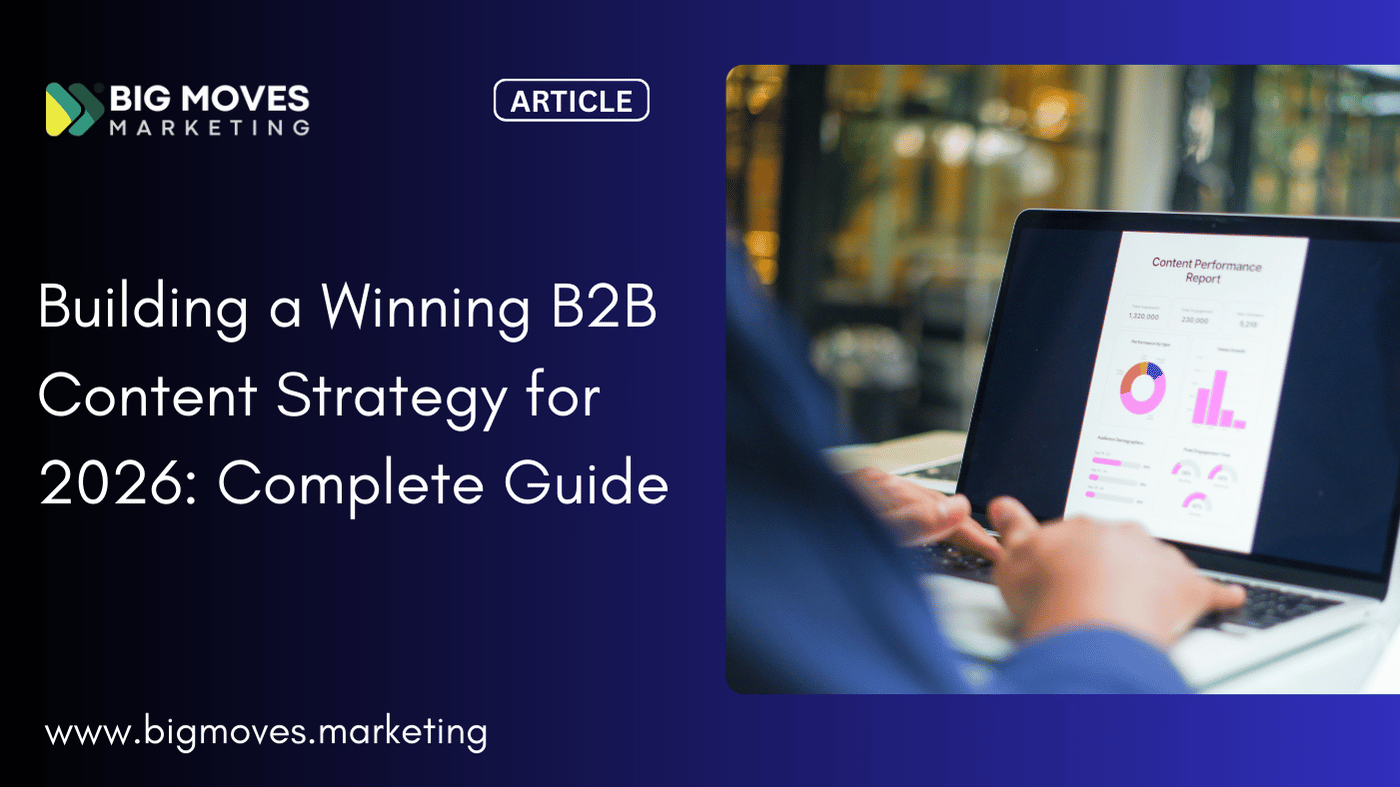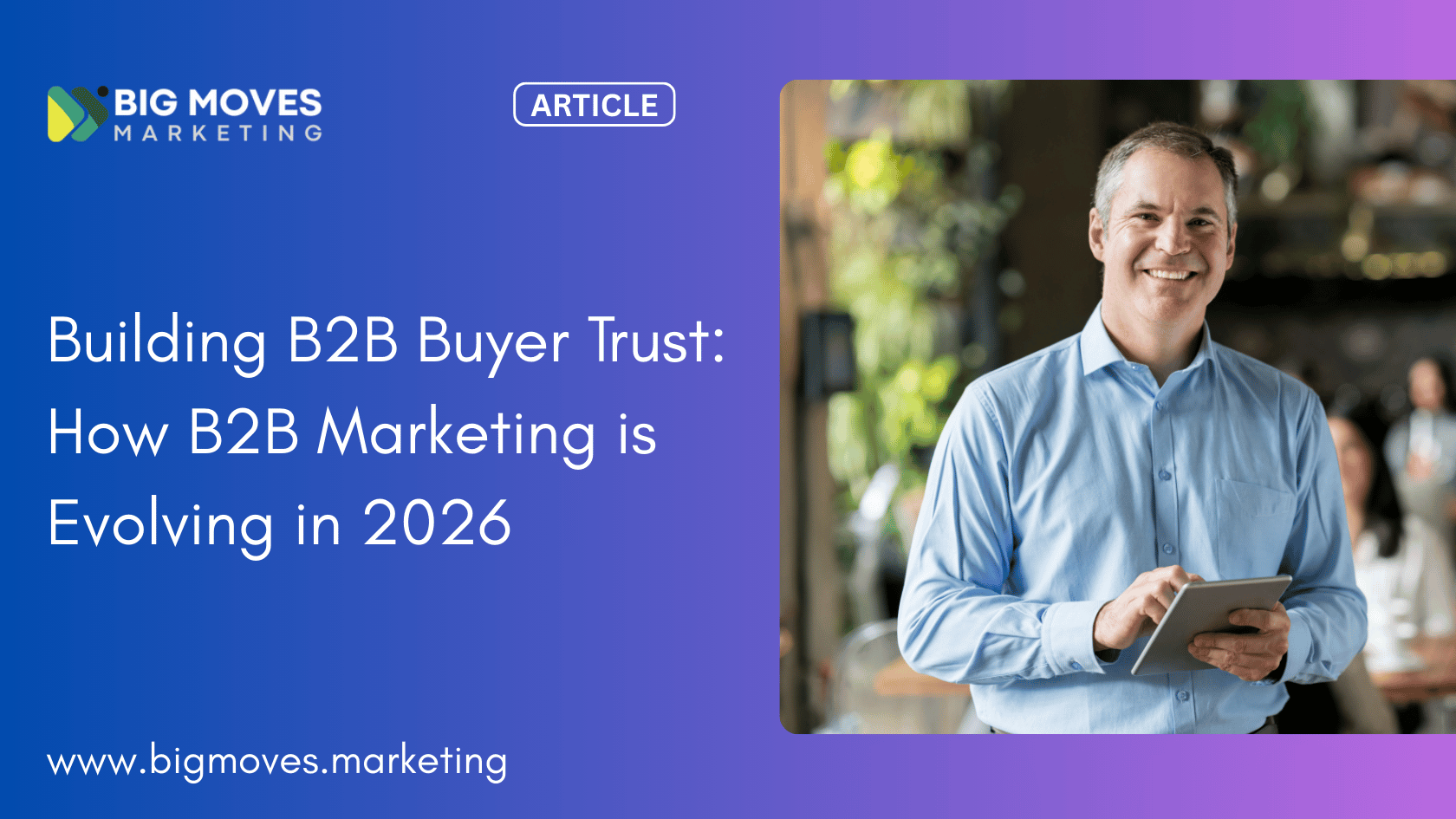How a B2B Consultant Accelerates Business Growth

What a B2B Consultant Brings to Your Business

A B2B consultant offers specialized expertise to help businesses navigate complex challenges and achieve sustainable growth. They possess a deep understanding of the specific dynamics of business-to-business interactions, setting them apart from general business advisors. This specialized knowledge allows them to craft targeted strategies for the intricacies of B2B markets, including sales optimization, targeted marketing, and operational enhancements. This laser focus addresses the particular needs and pain points of businesses operating in the B2B landscape.
Unbiased Insights and Fresh Perspectives
Hiring a B2B consultant provides your business with an invaluable outside perspective. Internal teams, while possessing valuable company knowledge, can sometimes be constrained by existing company culture and inherent biases. Consultants bring a fresh set of eyes and a new perspective, allowing them to identify potential blind spots and propose innovative solutions that internal teams might miss. This objectivity is crucial for uncovering hidden opportunities and challenging outdated assumptions.
For instance, a consultant could identify untapped market segments or recommend new pricing strategies to significantly increase revenue. This external viewpoint can be the key to unlocking growth potential that may have been previously overlooked.
Bridging Knowledge Gaps and Accelerating Growth
B2B consultants facilitate valuable knowledge transfer. Their experience working with diverse businesses across various sectors provides them with a wealth of knowledge and a collection of best practices. This expertise enables them to address critical knowledge gaps within your organization and accelerate growth. This is particularly beneficial for startups and rapidly expanding companies that may lack the internal resources or experience to navigate specific challenges.
Furthermore, seasoned B2B consultants possess a deep understanding of market trends and emerging technologies. This forward-thinking perspective allows them to offer guidance that keeps your business ahead of the curve and prepared for future market shifts.
Measurable Results and Strategic Investments
Even in uncertain economic times, many businesses remain focused on growth. In 2023, about 75% of B2B companies globally anticipated stable or growing profits compared to the previous year, with 12% projecting growth of 5% or more. Find more detailed statistics here. This optimistic outlook emphasizes the importance of strategic investments in areas like B2B consulting. A skilled consultant can help your business capitalize on these opportunities and achieve quantifiable results.
These results may include higher sales conversion rates, improved operational efficiency, or greater market penetration. Ultimately, a B2B consultant serves as a catalyst for growth, empowering your business to reach its full potential.
High-Impact Areas Where B2B Consultants Deliver Measurable Results

What makes a B2B consulting engagement successful? The key is focusing on specific business functions where consultants consistently deliver a strong return on investment (ROI). This involves targeting areas where specialized skills can make the biggest difference. Let's explore some of these key areas.
Revitalizing Sales Processes
Sales process optimization is a primary area where B2B consultants excel. Internal sales teams can often develop habits that lead to hidden inefficiencies. A consultant provides an outside perspective, dissecting the sales cycle to identify bottlenecks and implement data-driven solutions.
This could involve anything from refining lead qualification criteria to implementing new sales technologies like Salesforce or overhauling the sales training program. These targeted adjustments help streamline the process, leading to higher conversion rates and revenue growth. Ultimately, an optimized sales process empowers teams to close deals more effectively.
Refining Go-to-Market Strategies
Go-to-market (GTM) strategy refinement is another critical area. A well-defined GTM strategy is the bedrock of successful product launches and market penetration. B2B consultants bring a wealth of market analysis expertise and customer insights to create impactful GTM strategies.
They ensure the right message reaches the right customer at the right time, using the most effective channels. For example, a consultant might uncover an untapped customer segment or recommend a shift in marketing channels to reach a broader audience. This targeted approach maximizes marketing ROI and accelerates customer acquisition.
Maximizing Marketing Channels
Within B2B marketing, email marketing is particularly effective for lead generation. 50% of B2B marketers identify it as their top ROI-generating method, delivering an estimated $44 return for every $1 spent. Content marketing is also highly utilized, with 69% of B2B organizations adopting this approach at a cost 62% lower than traditional marketing. Learn more about B2B marketing trends. A consultant can optimize these channels for even greater results.
Developing Scalable Business Models
B2B consultants also play a vital role in developing scalable business models. Growth brings complexity, and operational structures must adapt. A consultant can help design and implement scalable processes for sustainable expansion.
This might involve automating tasks, optimizing workflows, or integrating new technologies. Focusing on scalability allows a business to handle increasing demand while maintaining efficiency. This proactive approach is essential for long-term success and profitability.
Measuring the Impact
The true test of a B2B consultant's value lies in the measurable results they achieve. These results validate the investment and demonstrate the consultant's positive impact on the business. To illustrate this, let's examine a few key areas. The following table outlines some typical improvements a B2B consultant can deliver.
B2B Consultant Impact Areas by Business Function: This table outlines the primary business functions where B2B consultants deliver the most significant value, with typical metrics improvements and timeframes for results.

These ranges, while estimates, showcase the potential for substantial positive change through a B2B consulting engagement. Selecting the right consultant and clearly defining objectives are crucial for maximizing the potential benefits.
Finding Your Perfect Match: Selecting the Right B2B Consultant
Choosing the right B2B consultant can be daunting, given the sheer number of options. But finding the right partner is a strategic decision that requires careful consideration. This section offers a framework for evaluating potential consultants, based on insights from business leaders who’ve successfully navigated this process.
Assessing Expertise and Acumen
The first crucial step is figuring out the kind of expertise you need. Is industry-specific knowledge essential, or is general business acumen more valuable? Some consultants specialize in niche markets, while others offer a wider range of expertise. Understanding your unique needs is key to finding a good fit. For example, a SaaS startup might prioritize a consultant with a proven history of scaling software businesses. Meanwhile, a manufacturing company may seek supply chain optimization expertise.
Evaluating Past Performance
Don't just rely on testimonials. Delve into a consultant’s past performance by requesting case studies or talking to previous clients. Focus on measurable results and how the consultant handled challenges similar to yours. This due diligence provides a much clearer picture of their actual abilities. Also, consider how the consultant’s approach fits with your company's values and culture. A good cultural fit can lead to better communication and collaboration.
Critical Questions and Red Flags
Asking insightful questions can reveal a consultant’s true capabilities. Ask about their process, how they measure success, and how they deal with unexpected roadblocks. Beware of vague answers or unrealistic promises. Red flags could include poor communication, a reluctance to share past work, or an overly aggressive sales approach. A consultant should be able to clearly explain their value and show genuine interest in understanding your business needs. These are strong indicators of a potentially successful partnership.
Verifying Credentials and Engagement Models
Thoroughly vet a consultant's credentials. Verify their experience, certifications, and any claimed affiliations. This could involve checking references, doing online research, and even getting referrals from trusted sources. Understanding different engagement models is also important. Some consultants work on project-based contracts, while others offer retainer agreements. Select a model that aligns with your budget and project requirements.
Negotiating Terms and Setting Expectations
Before signing anything, clearly define the scope of work, deliverables, timelines, and payment terms. This protects your interests and sets the stage for a productive partnership. For instance, outline specific success metrics and establish regular reporting to monitor progress. This transparency keeps everyone on the same page, working towards shared goals. The rise of AI in business is also changing how consultants operate. As of 2023, 70% of B2B organizations were integrating AI into their sales strategies, although only 21% had fully implemented it. This aligns with B2B eCommerce reaching $1.8 trillion in the U.S., accounting for 17% of all B2B sales. Explore this topic further. Discussing a consultant's understanding and application of AI in their approach is now essential.
By following these guidelines, you can confidently choose a B2B consultant who can help you reach your business goals and drive significant growth. Picking the right partner is an investment in your company’s future.
Inside the B2B Consulting Journey: What Actually Happens

Working with a B2B consultant is a dynamic process. This section offers a look into a typical engagement, from the first conversations to putting plans into action and seeing the results. Understanding these phases helps everyone involved set realistic expectations for a smoother, more productive experience.
Initial Discovery and Assessment
The journey starts with discovery conversations. These initial meetings are crucial. They help both the client and the consultant understand each other’s needs and what they hope to achieve. The consultant will explore the client's business challenges, objectives, and existing processes.
This phase is much like a doctor's visit. The consultant gathers information to diagnose the root causes of any problems and identify potential opportunities for improvement.
This initial assessment is the bedrock of a focused consulting plan. It's a collaborative effort, ensuring the consultant's skills and knowledge directly address the client's specific needs. This sets the stage for success.
Developing The Consulting Plan
After the discovery phase, the consultant creates a detailed consulting plan. This plan maps out the project's scope, proposed solutions, key performance indicators (KPIs), and a timeline for putting it all into practice. This roadmap guides the entire engagement, providing clarity and focus for both sides.
Think of this plan as the blueprint for reaching desired outcomes. It details the strategies, tactics, and resources needed to address the client's challenges and reach their business objectives. This organized method ensures everyone is working together toward a shared goal.
Implementation and Collaboration
The implementation phase brings the consulting plan to life. This usually means close collaboration between the consultant and the client’s internal teams. Sharing knowledge and communicating effectively is essential for a smooth execution and ensuring everyone is on board.
This is where the real work happens. It's a dynamic stage requiring flexibility. The consultant and client work together, navigating unexpected hurdles and taking advantage of new opportunities. Open communication and collaborative problem-solving are essential for successful implementation.
Measuring Results and Evaluating Impact
Throughout the project, the consultant tracks progress and measures results against those pre-defined KPIs. This data-driven approach allows for adjustments to keep the engagement on track. Regular reports and feedback keep the client informed of the progress and the value delivered.
This ongoing assessment helps demonstrate the consultant’s impact and ensures the client sees a strong return on their investment. This transparency builds trust and reinforces the value of the consultant’s expertise.
Managing Resistance and Fostering Collaboration
Sometimes, internal resistance to change can appear. This is a normal human reaction to new ways of working. A skilled consultant anticipates this resistance and addresses it with effective change management strategies.
By encouraging open communication, addressing concerns, and highlighting the benefits of the proposed changes, the consultant helps build internal support. This approach makes sure the implemented solutions are sustainable and create long-term improvements.
To illustrate the process, let’s look at a typical B2B consulting engagement timeline.
B2B Consulting Engagement Timeline
This table outlines the typical phases of a B2B consulting engagement, key activities in each phase, and expected time commitments.

This table offers a general overview. Actual timelines and activities will vary depending on the project's size and the client’s specific needs. The key takeaway is that understanding each phase allows businesses to prepare internally and maximize the value of their consulting investment. Choosing the right consultant is a strategic decision that can lead to significant and lasting growth.
Maximizing Your B2B Consultant Investment: Beyond the Basics
Successfully navigating a B2B consulting engagement requires more than just hiring a consultant. It demands active management and strategic collaboration. This section, drawing upon insights from business leaders who have achieved substantial ROI from their consulting partnerships, reveals strategies for maximizing value. These strategies go beyond conventional wisdom, providing a roadmap to unlock the full potential of your consultant investment.
Establishing Accountability and Driving Results
A key factor in successful consulting is setting clear expectations and establishing accountability from the outset. This doesn't mean micromanaging every task, but rather collaboratively defining key performance indicators (KPIs). Establish regular reporting to monitor progress.
For example, if you're aiming to improve sales conversions, KPIs could include lead generation rates, sales cycle length, and average deal size. This data-driven approach provides both the consultant and the client with a shared understanding of success, allowing for adjustments along the way. This ensures everyone works towards the same objectives with a clear measure of progress.
Building Internal Capabilities Through Knowledge Transfer
One of the most significant benefits of B2B consulting should be the development of internal capabilities. A true consultant empowers the client to sustain improvements long after the engagement concludes.
This requires a deliberate focus on knowledge transfer throughout the project. This might involve incorporating training sessions, documenting processes, and providing shadowing opportunities for internal teams. This approach ensures valuable insights and skills aren't lost when the consultant departs, fostering self-sufficiency and long-term growth. By embedding knowledge within the organization, businesses create a lasting legacy from the consulting experience.
Creating Implementation Approaches That Stick
Even the best recommendations are useless without effective implementation. Creating sustainable change demands buy-in and adoption from internal teams. This means tailoring the implementation approach to the organizational culture and communicating changes clearly.
For instance, a consultant might pilot new processes within a specific department before a company-wide rollout. This allows for testing and refinement while mitigating potential resistance. Successfully integrating new strategies into the existing organizational fabric is essential for lasting results.
Balancing Recommendations with Organizational Realities
While consultants bring valuable external expertise, their recommendations must be balanced against the practical realities of your organization. Consider existing resources, budget constraints, and internal dynamics.
For example, a consultant might recommend a complete sales process overhaul, but the company may only have resources for incremental changes. Openly discussing these constraints allows for adjustments to the plan while still achieving meaningful improvements. This pragmatic approach ensures that solutions are both effective and feasible.
Prioritizing Initiatives Based on Potential Impact
With limited resources, prioritizing initiatives is crucial. Focus on the recommendations offering the greatest potential impact on business objectives. This may require difficult decisions, such as postponing lower-priority projects or focusing on quick wins that deliver immediate value.
For example, if a consultant identifies multiple areas for improvement, focusing on the two or three with the biggest ROI will yield the most significant results. This strategic approach maximizes the value of the consulting engagement and aligns with overall business goals.
Tracking ROI Through Meaningful Metrics
Measuring the success of a consulting engagement requires tracking the right metrics. These metrics should be directly tied to the defined business objectives and KPIs. Regular reporting and analysis of these metrics provide insights into the implemented strategies’ effectiveness, allowing for course correction as needed.
For instance, tracking lead generation, sales conversion rates, or customer acquisition cost (CAC) can demonstrate the consultant’s impact. This focus on data-driven results ensures a measurable return on investment. By implementing these strategies, businesses can transform their B2B consultant investment from a simple expense into a driver of growth and sustainable success. This proactive approach maximizes the engagement's value and sets the stage for long-term improvement.
Navigating Rough Waters: Overcoming B2B Consulting Challenges
Even the most promising B2B consultant relationships can hit roadblocks. This section explores those common challenges and offers practical solutions, drawing from the experiences of business leaders who have successfully navigated these difficulties.
Managing Internal Resistance to Change
Resistance to change within a team is a natural human response. A skilled B2B consultant anticipates and addresses this by using effective change management strategies. This involves clearly communicating the why behind the change, emphasizing the benefits, and addressing employee concerns.
Involving key team members in the implementation process, for instance, fosters ownership and reduces pushback. Successfully managing this resistance ensures the consultant's recommendations are embraced, not rejected.
Overcoming Implementation Hurdles
The gap between theory and practice often presents implementation challenges. Consultants offer recommendations, but executing them requires careful planning. A consultant might suggest new Salesforce software, for example. However, implementation might require substantial training and adjustments to existing workflows.
Addressing these hurdles proactively, with a focus on training and support, ensures a smoother transition and maximizes the impact of the recommendations.
Addressing Conflicting Recommendations and Organizational Constraints
Sometimes, consultant recommendations might clash with organizational constraints, such as budget limitations or existing technology. Open communication is key in these situations. Discuss the constraints with the consultant and explore alternative solutions.
This could involve phasing in changes over time or adapting recommendations to fit the organization’s current capabilities. This flexible approach ensures the engagement remains valuable while respecting organizational realities.
Course Correction and Renegotiating Scope
Business needs evolve, and the original scope of a consulting engagement might become misaligned with current priorities. Discuss these changes with your consultant and renegotiate the scope as needed. This proactive approach ensures the engagement stays relevant and delivers the desired outcomes.
If the project veers off track, work with your consultant to implement course correction strategies. Use data and feedback to identify necessary adjustments. This collaborative approach maximizes the value of the engagement even when circumstances change.
Ensuring Knowledge Transfer
A successful B2B consulting engagement empowers your team to sustain improvements after the consultant leaves. This requires proactive knowledge transfer. Implement structured protocols for documentation, training, and mentorship. This ensures knowledge isn’t confined to the consultant.
This might involve creating detailed process documents, conducting training sessions, or establishing ongoing communication channels. This way, your team gains valuable insights and skills that remain after the engagement ends.
Conflict Resolution Frameworks
Even with the best intentions, conflicts can occur. Establish clear conflict resolution frameworks from the outset. This might involve designated points of contact for addressing issues or a structured process for escalating concerns.
These frameworks allow you to address challenges constructively and preserve the relationship’s value. A proactive approach to conflict resolution safeguards both the consultant's contributions and your business interests.
By understanding and proactively addressing these challenges, businesses can maximize the value of their B2B consultant partnerships. This leads to lasting improvements, sustainable growth, and a stronger competitive advantage.
Are you a B2B SaaS startup or technology company looking to scale effectively? Big Moves Marketing offers fractional CMO expertise to help founders and teams achieve measurable results. We specialize in crafting compelling messaging, building conversion-ready websites, and executing data-driven growth campaigns. Learn more about how Big Moves Marketing can help you reach your business goals.
%20png%20copy.png)






%20-%20white.svg)
